Senior Citizens and Permanently Disabled
Note: Income limits and exclusion amounts contained herein are for the 2025 Tax Year and are adjusted annually.
Three programs exist to help Senior Citizens and the Disabled. The first program is the “Elderly or Disabled Exclusion” which has existed for several years, and reduces or eliminates taxes for owners over the age of 65 or are under 65 and “permanently and totally disabled” who meet certain income limitations. The second program is the “Disabled Veteran Exclusion” which is similar to the Elderly/Disabled Exclusion, but has no income limitation, and is also available to non-remarried surviving spouses of a deceased veteran who would qualify. The third program is the “Circuit Breaker Property Tax Deferment” that limits the total tax bill to a percentage of total income, but the amount of decrease is a “deferred tax” which must be repaid for a limited number of years, plus interest if a “disqualifying event”, such as selling the home, occurs. All three programs use the same application form, and applicants may apply for one or multiple programs for which they qualify. In the case of multiple qualifications, you may choose which program would give the best benefit. Each program is detailed below, but you should consult the information provided on the application and State Statutes referenced for a complete explanation. For all income-based programs, Income means the owners adjusted gross income (AGI) as determined for Federal Income Tax Purposes, plus all monies received other than gifts or inheritances received from a spouse, lineal ancestor, or lineal descendant.
Elderly or Disabled Exclusion
This program excludes from property taxes the first $25,000 or 50% (whichever is greater) of the appraised value of a permanent residence owned and occupied by North Carolina residents aged 65 or older or totally and permanently disabled whose income does not exceed $37,900. If you received this exclusion last year, you do not need to apply again unless you have changed your permanent residence. If you received the exclusion last year, and your income exceeds $37,900, you must notify the Assessor. If you received the exclusion last year because you were totally and permanently disabled and you are no longer totally and permanently disabled, you must notify the Assessor. If the person receiving the exclusion last year has deceased, the person required by law to list the property must notify the Assessor. Failure to make any of the notices required by this paragraph by June 1st will result in penalties and interest. See GS 105-277.1 for the full text of the statute.
Forms must be filed by June 1st. To apply for this program, you must file Form AV-9. If you are less than 65 years old and applying under a permanent disability, you must also have Form AV-9A, which must be certified by a NC-licensed Physician or a governmental agency authorized to determine qualification for disability benefits.
Disabled Veteran Exclusion
This program excludes up to the first $45,000 of the appraised value of the permanent residence of a disabled veteran. A disabled veteran is defined as a veteran whose character of service at separation was honorable or under honorable conditions and who has a total and permanent service-connected disability or who received benefits for specially adapted housing under 38 U.S.C. 2101. There is no age or income limitation for this program. This benefit is also available to a surviving spouse (who has not remarried) of either (1) a disabled veteran as defined above, (2) a veteran who died as a result of a service-connected condition whose character of service at separation was honorable or under honorable conditions, or (3) a service member who died from a service-connected condition in the line of duty and not as a result of willful misconduct. See G.S. 105-277.1C for the full text of the statute.
Application for this Exclusion requires Form AV-9 (required for all 3 programs) and an additional form NCDVA-9 Certification for Disabled Veteran’s Property Tax Exclusion which must be certified by the US Dept. of Veterans Affairs (VA).
Circuit Breaker Property Tax Deferment
Under this program, taxes for each year are limited to a percentage of the qualifying owner’s income. A qualifying owner must either be at least 65 years of age or be totally and permanently disabled. For an owner whose income amount for the previous year does not exceed the income eligibility limit for the current year, which for the 2025 tax year is $37,900, the owner’s taxes will be limited to four percent (4%) of the owner’s income. For an owner whose income exceeds the income eligibility limits but does not exceed 150% of that limit, which for the 2025 tax year is $56,850, the owner’s taxes will be limited to five percent (5%) of the owner’s income.
However, the taxes over the limitation amount are deferred and remain a lien on the property. The last three years of deferred taxes prior to a disqualifying event will become due and payable, with interest, on the date of the disqualifying event. Interest accrues on the deferred taxes as if they had been payable on the dates on which they would have originally become due. Disqualifying events are death of the owner, transfer of the property, and failure to use the property as the owner’s permanent residence. Exceptions and special provisions apply. See GS 105-277.1B for the full text of the statute.
You must file a new application for this program every year. Forms must be filed by June 1st. To apply for this program, you must file Form AV-9. If you are less than 65 years old and applying under a permanent disability, you must also have Form AV-9A, which must be certified by a NC-licensed Physician or a governmental agency authorized to determine qualification for disability benefits.
Greene County Tax Department
229 Kingold Boulevard, Suite B
PO Box 482
Snow Hill, NC 28580
Phone: 252-747-3615
Hours of operation:
Monday – Friday
8:30 am – 5:00 pm

